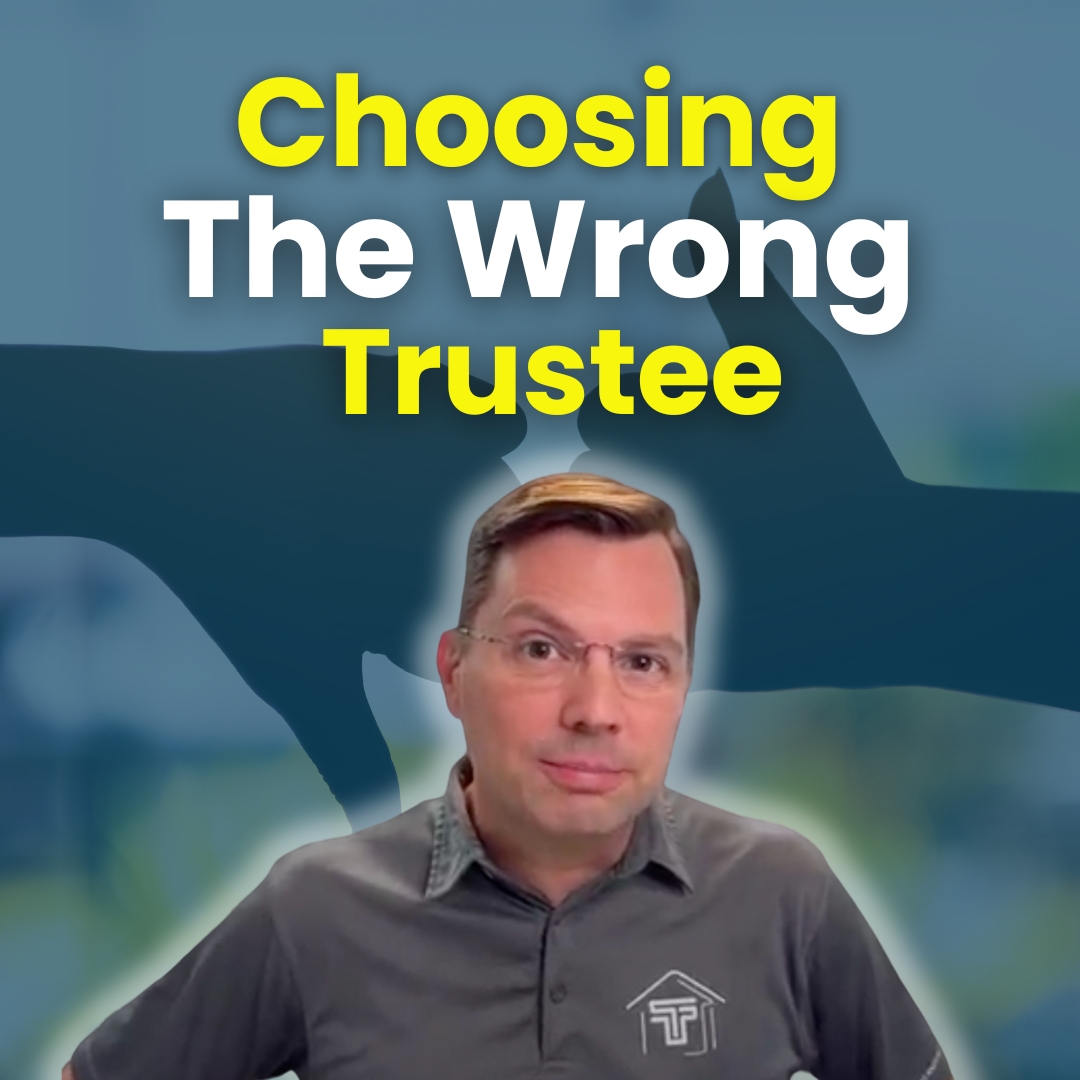Episode Transcript
[00:00:00] Speaker A: That is technically a violation of what's called the due on sale clause inside their mortgage that is recorded against that property, giving the lender the right to foreclose on the property.
Hey everybody, this is Joe Siegel, your Florida real estate entrepreneur, asset protection attorney. And I just wanted to answer a quick question that we keep getting about the due on sale clause. Whenever you buy a property that is subject to a mortgage and you just take over payments on the mortgage, you don't contact the lender, you don't tell them you're taking over the mortgage, you don't tell them you're going to start making payments for their borrower. That is technically a violation of what's called the due on sale clause inside their mortgage that is recorded against that property, giving the lender the right to foreclose on the property.
So a lot of people go, well, but aren't there exceptions to that rule? And absolutely, yes, There is the Garn St Germain act that allows you to sell your property or to not sell your property, but convey your property into a trust where their borrower is the beneficiary and typically is also the trustee.
And it is done for estate planning purposes and the property is their primary residence.
The Garden St. Germain act does not apply to properties that are not their borrowers, the lenders, borrowers primary residence. So it does not apply to second homes or investment properties. It only applies to the primary residence of the borrower. So how do you get around it?
You don't. There is no exception to it. So as long as the property has been conveyed out of the borrower, borrower's name and they are no longer living in that property as their primary residence, then they are not entitled to the exceptions provided by the Garden St. Germain act. Fortunately, we have not seen many lenders calling loans due. We are hearing of it more often now. We are hearing more and more lenders who are calling them due simply because interest rates have gone up and the interest rate that the borrower has the property at is a very low interest rate, maybe 2 to 3%. Interest rates now are 6 to 7%. So lenders may be looking for a reason to call that loan due, get it paid off, take that money that they have lent out at 2% and lend it out to a new borrower at 6 and a half to 7%.
So just be prepared. We tell people all the time, be prepared. It is a risk that you take. When you as a real estate entrepreneur buy a property subject to someone else's mortgage, you are taking the risk that the lender will call the loan due, they give you 30 days to put the property back into the borrower's name, or they send an affidavit to you for the borrower to sign to say, yes, it is still my property, I still live there as my primary residence, and I am still covered by the exceptions of the GAR and St Germain act because of that. So therefore you cannot foreclose on this property.
However, if a borrower signs that and they are lying that they are living in the property as their primary residence and they are actually not, they have moved out, that could subject them to a lot of problems. That's technically wire fraud. If they scanned it and emailed it back to the lender. It is bank fraud because you're sending it to a federally regulated mortgage lender, a bank probably, or a servicer. So this could cause some problems. So we typically tell investors that if you bought the property subject to, there is a good chance, not a good chance, but there is a chance that the lender will call the loan due and threaten you with foreclosure. If you cannot get the property back into your original borrower's name within 30 days, you need to be prepared to pay that loan off somehow, some way, either through a refinance or you go borrow money from a hard money lender or a private lender or something like that to pay them off. Otherwise that lender will move through with foreclosure and foreclose. Now, this is a non monetary foreclosure. They are foreclosing not because you are not paying the mortgage, not because you are not paying the taxes, not because you are not paying the insurance. They are foreclosing for a non monetary reason simply because you have conveyed the property out of the borrower's name into someone else's name, whether it's a land trust or otherwise.
And that violated technically the terms of the mortgage.
You may be able to get some sympathy from the courts to say, well, you know, they're getting paid, your honor, we are not behind, they're receiving their money, taxes are paid, insurance is paid, everything's paid up, everything's. The property's being maintained and taken care of. So a judge may be willing to set the sale date out a long way, to set the hearing dates out a long way off, just out of sympathy for you, to give you time to refinance.
But that in the end, ultimately, simply because the terms of the mortgage and the way the law works, the judge will have to ultimately allow that lender to go ahead and foreclose on the property unless you can work something out.
So that's what I have to say about the Garden St Germain act and exceptions to the due on sale clause and transferring your property out of your name and into anything else if it is not going to be your continue to be your primary residence after you have transferred the property may cause you some problems. Otherwise the Garden St Germain act should be able to work and we can help you out in that regard. If you ever have any questions about this, please don't hesitate to reach out, contact us, ask us questions one way or the other. We're happy to help you in any way we can regarding this and until then Trust this.
[00:06:43] Speaker B: Thanks for listening to this edition of Trust this. If you got something out of it, please press like and subscribe and give us a five star review to help us reach others who can benefit from this series. Until next time, keep aspiring to a better life.


